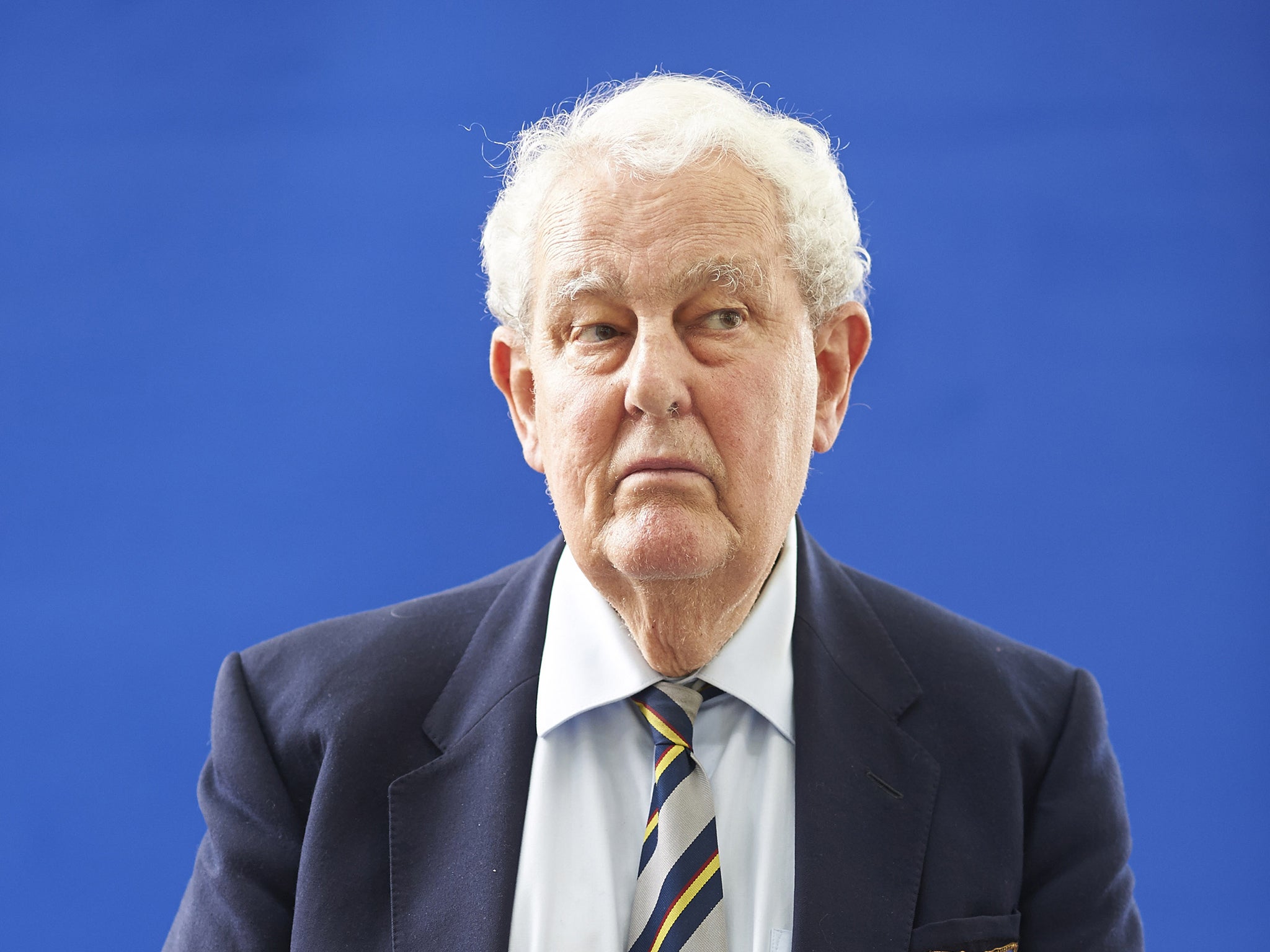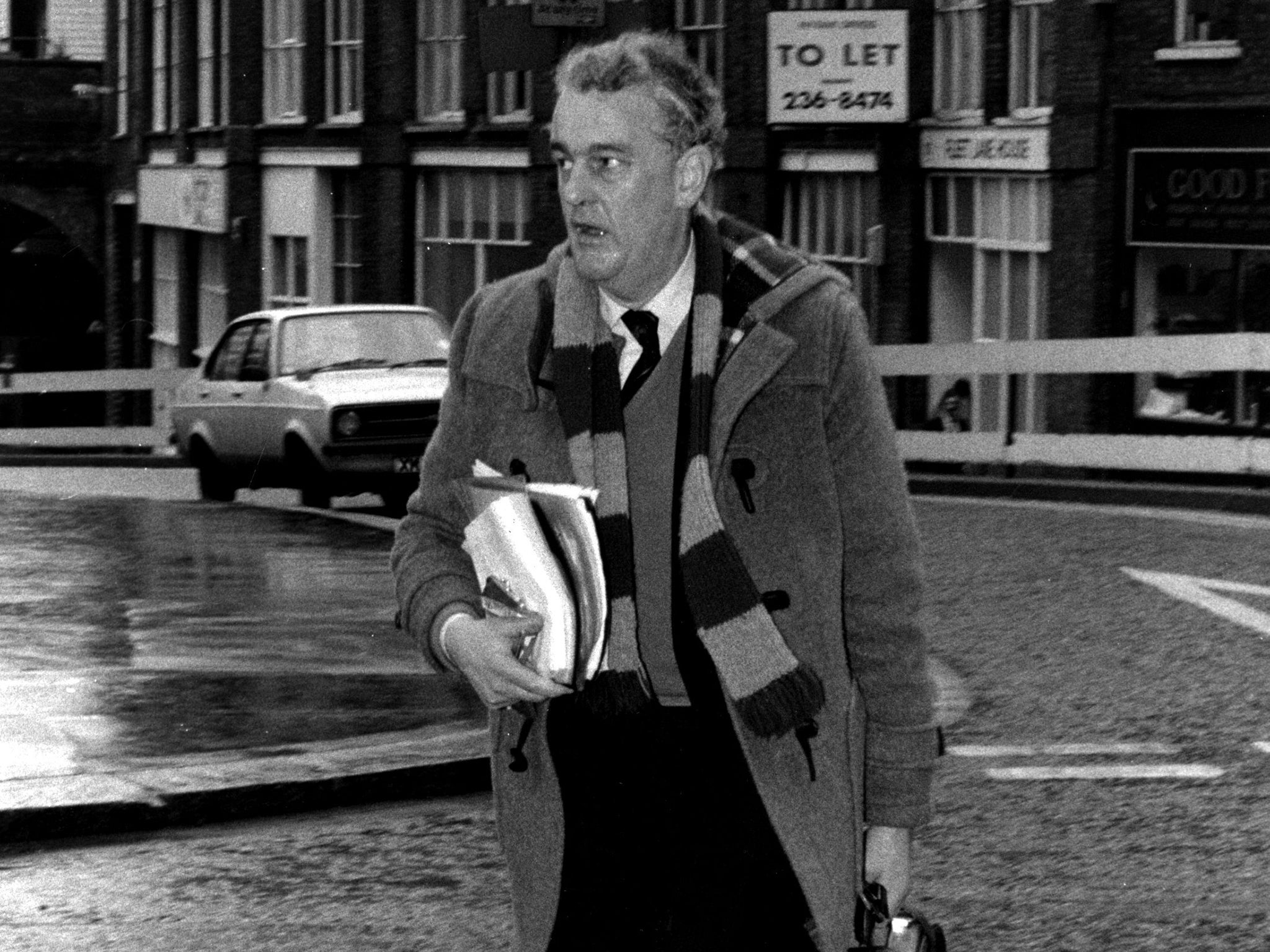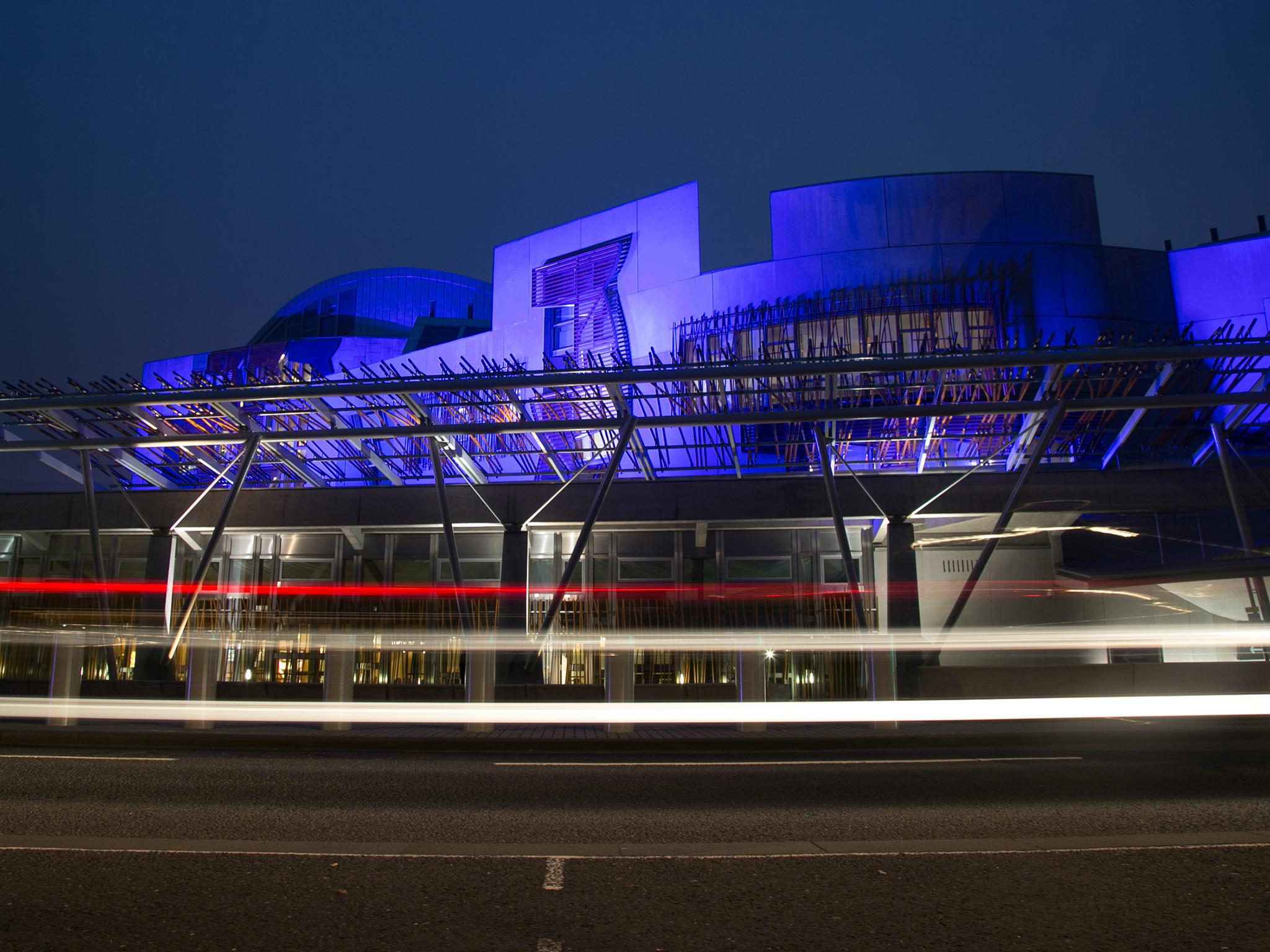Tam Dalyell: Still asking his awkward question, the prophet of West Lothian
Tam Dalyell warned for years that Westminster’s relationship with Scotland was broken. Now, he tells Donald Macintyre, it is even worse, thanks to some ‘off their rocker’ behaviour by party leaders

Tam Dalyell cheerfully compares himself with the prophetess Cassandra, cursed by Apollo “so that no one would believe her prophecies”. For it was Dalyell who as a Scottish Labour MP first asked the famous West Lothian question now haunting the political class a generation later.
The massive constitutional wrangle which began this week post-Scottish referendum is really an attempt to solve the conundrum repeatedly framed by Dalyell during the guerrilla campaign he led against the Callaghan government’s effort to create a Scottish parliament.
“For how long will English Hon members tolerate... Hon Members from Scotland, Wales and Northern Ireland exercising a probably… often decisive effect on English politics while they themselves have no say in the same matters in Scotland, Wales and Northern Ireland?” (Not indefinitely, to judge by this week’s Tory clamour for “English Votes for English Laws”.)
For 47 long days a disparate group of conviction unionists opposed line by line what would become the minority Labour government’s Scotland Act 1978 – Dalyell, Enoch Powell, the young Neil Kinnock – “somewhat spasmodically” as Dalyell puts it – and George Cunningham, who neutered the Act with an amendment requiring the backing of 40 per cent of eligible voters in the subsequent Scottish referendum.
Dalyell had read John Morley’s life of Gladstone, who tangled with similar issues over Irish Home Rule. In one variation of the West Lothian Question – Powell gave it its name – Dalyell remembers asking the Labour whip Peter Snape, “How can I vote on such and such a matter in West Bromwich [Snape’s constituency] etc etc…” A discomfited Snape went to the Labour Chief Whip Michael Cocks and asked him what the answer was. To which, a chuckling Dalyell claims, “Michael said: ‘I’m fucked if I know.’”
Dalyell is fearlessly independent-minded – and sharp – today at 82 as throughout his 43 years as an anti-imperialist, anti-war, and pro-European MP. While greatly relieved by the Scottish no vote, he says: “We are in a terrific pickle, because it leaves a vow that was made very publicly [and unnecessarily, he argues] by Gordon Brown, who had no authority to make it, that there would be all sorts of powers handed over and we would keep the Barnett formula. Now… we can’t… expect Scotland to have a privileged position and to keep the Barnett formula, and he must have known that.
“I wholly agree with my old friend, Joel Barnett, because he’s horrified that his name is attached to something that was done… quickly… as a sort of temporary measure in the desperate circumstances of 1978. The result was that Scottish public spending per head, was 24, 25, 26 per cent more than per head in England. Now that can’t go on if you’ve promised tax powers to the Scottish parliament.”

To the formula Brown unveiled this week of transferring some but not all income tax powers to Holyrood, he asks: “Did he, as a former Chancellor, consult HMRC about the complexities of this?”
But surely all three UK party leaders agreed the vow? “Yes, and I thought they were all off their collective rocker, that they were making promises which they hadn’t consulted Parliament about and which tended to be jolly near fraudulent. I don’t believe… that people who did vote Yes, were voting for more powers for the parliament, let alone the constitutional arrangements of the United Kingdom; they were voting because they were jolly fed up with their housing conditions, transport, and all sorts of other issues.”
So what would he do as a Labour Prime Minister in waiting? His answer is, to put it mildly, radical. “I would bring to an end the Scottish parliament. There would be screams of blue murder from most of your colleagues in the Scottish-based press, almost but not quite every politician, but if you were to ask directly elected councillors they might think, ‘That bugger Tam Dalyell is right.’ I would go back to the regions: Strathclyde, Lothian, Tayside, Central, Grampian, because I believe Scotland is a number of rather different places.”
But surely abolition is totally unrealistic? “Don, the question you asked me is what I would do if I was prime minister. That’s what I would do. Now the regions would have to be given real powers. Aberdeenshire wants to be run by Aberdeen. I’m bloody sure that Glasgow would rather be run by Glasgow than Edinburgh.”
To those who think this “unreasonably tough” he points out that after he had been thought “so irresponsible” by Scottish Labour for backing the Cunningham amendment, in the 1979 election his majority went “up from 2,500 to 20,500 because people felt, ‘Well, he means what he says. He really argued his case.’”

Dalyell wants to restore “the dignity of local government” in England. He briskly rejects Scottish parliament-style English regional assemblies: “My God, if I was going to go along to Birmingham and say, ‘We are setting up the kingdom of Mercia with different laws and a different tax regime from London’, I think one might get a rather ribald answer.” Instead he would like a return to an old municipal tradition including counties “because people identify with the Essex county council or the Sussex county council or whatever it is. And if they want to have the Manchester city region, or Birmingham or South Yorkshire, that’s up to them.”
In this, he says, he is a disciple of Dame Evelyn Sharp, arch-municipalist and formidable Permanent Secretary at the Department of Housing and Local Government when Dalyell was Dick Crossman’s Parliamentary Private Secretary (a job he remembers fondly though “my wife says that Crossman treated me like his fag” and it was his last in government; Dalyell was too much his own man to be promoted). And this “would chime in with what I think is demanded, namely bringing government nearer to the people, which the regions do more than the Scottish parliament.” The West Lothian question would then “evaporate.”
Unrepentantly unionist Dalyell mentions in passing the costs of the Scottish parliament compared with those of the old “very slim” Scottish Office, recalling as he does the declaration by one of its Labour incumbents, the late Willie Ross, that, “the only places for nationalism are Hampden Park and Murrayfield. That’s my view.”
But in at least one sense, Dalyell’s stance has been powerfully vindicated. The idea that its creation would “see off” off nationalism is the opposite of what happened. Piling heresy on high heresy, Dalyell even questions how personally committed the late John Smith (whom Dalyell hugely admired as a friend and party leader) was to devolution, even though he piloted through the 1978 Act as a minister and the Blair-government-created Scottish parliament was seen as fulfilling the legacy of Smith’s view that it was “the settled will of the Scottish people.” Dalyell insists that “between the day that devolution collapsed … and the tragic day that he died in 1994, John Smith never gave his mind to the logistics of devolution.”

He also believes Tony Blair was “very reluctant” but “didn’t want a humdinger of a row with Brown.” But on devolution he acquits Blair, whom he didn’t vote for as leader and whom he opposed on Iraq. “I criticise him bitterly on a whole range of other things, but on this … he was left with little option.”
It’s irresistible to ask Dalyell how parliament has changed since his election in 1962. Then he says, over 99 per cent of Labour MPs had experience outside politics. Dalyell, Eton and Cambridge educated son of an ancient Scottish family though he was, had done national service as a Royal Scots Greys trooper and taught for several years. Not wishing to sound “like an old gent with a stick pointing at a new generation” he adds that nowadays politicians “seem to go from university, into researcher to somebody, special adviser to somebody else, into the House of Commons, and sort of accelerate up the so-called greasy pole.”
Back to That Question. He affectionately remembers how when he introduced it yet again during one of the 1978 Scotland bill debates with the words: “It cannot be asked too often how …” an exasperated Smith interrupted him saying “It can be asked too often, Tam.” Maybe. But asked or unasked, it keeps coming back. As Dalyell, the Cassandra of Anglo-Scottish politics, always knew it would.
Join our commenting forum
Join thought-provoking conversations, follow other Independent readers and see their replies
0Comments